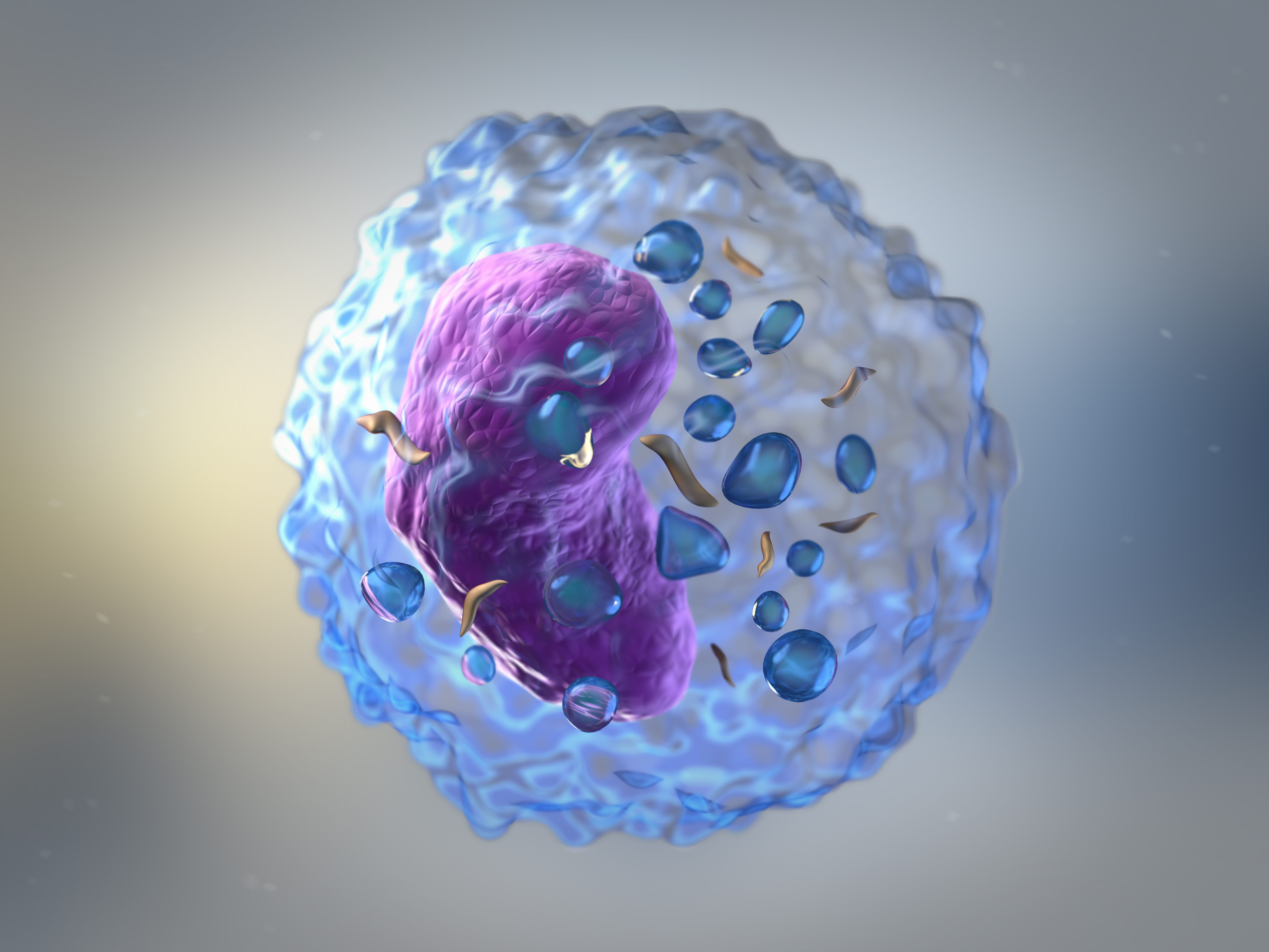Starving Innate Lymphoid Cells in Lung May Prevent Allergic Inflammation

Researchers at Weill Cornell Medicine showed that starving a group of immune cells by inhibiting the activity of the enzyme Arginase-1 impairs the cells’ ability to induce an allergic response. The study, “Arginase 1 is an innate lymphoid-cell-intrinsic metabolic checkpoint controlling type 2 inflammation,” published in the journal Nature Immunology, suggests a potential treatment for lung inflammatory diseases, including pulmonary fibrosis.
Innate lymphoid cells (ILCs) have an established role in promoting allergic diseases in the lung and other organs. Now, a team of investigators found that an enzyme called Arginase-1 is active during acute or chronic lung inflammation in both mouse and human ILC2s.
To understand the role played by Arginase-1, researchers genetically engineered mice with the gene for Arginase-1 deleted from ILCs, maintaining the rest of the immune system working and functioning normally. When the mice were exposed to an allergen called papain to induce an allergic reaction, the mice were unable to produce an allergic response, hence preventing lung inflammation.
Arginase-1 enzyme is important for breaking down the amino acid arginine into other metabolites, important for feeding ILCs. Without Arginase-1, these cells were kept in starvation and ultimately stopped proliferating or functioning.
Based on these initial results in mice, researchers investigated what happens in lung tissue samples from patients with chronic inflammatory lung diseases, such as chronic obstructive pulmonary disease (COPD) or idiopathic pulmonary fibrosis (IPF). As with mouse ILCs, researchers found that human ILCs in the inflamed tissues also expressed Arginase-1.
“These findings are very exciting and propel us to look deeper into how the immune system is regulated in the context of health and chronic inflammatory diseases,” said the study’s lead author, Dr. David Artis, director of the Jill Roberts Institute for Research in Inflammatory Bowel Disease and the Michael Kors Professor of Immunology at Weill Cornell Medicine, in a press release. “This report gives us new mechanistic insight to understand how we might be able to design more selective drugs that specifically target ILCs to treat a range of allergic diseases.”
Laurel Monticelli, a postdoctoral associate in Artis’ lab and the study’s first author, said that “While these are still early days in this research, our patient-based analysis, coupled with our mouse model studies, suggests altering Arginase-1 metabolism within these innate immune cells may offer a therapeutic target for multiple inflammatory diseases.”







